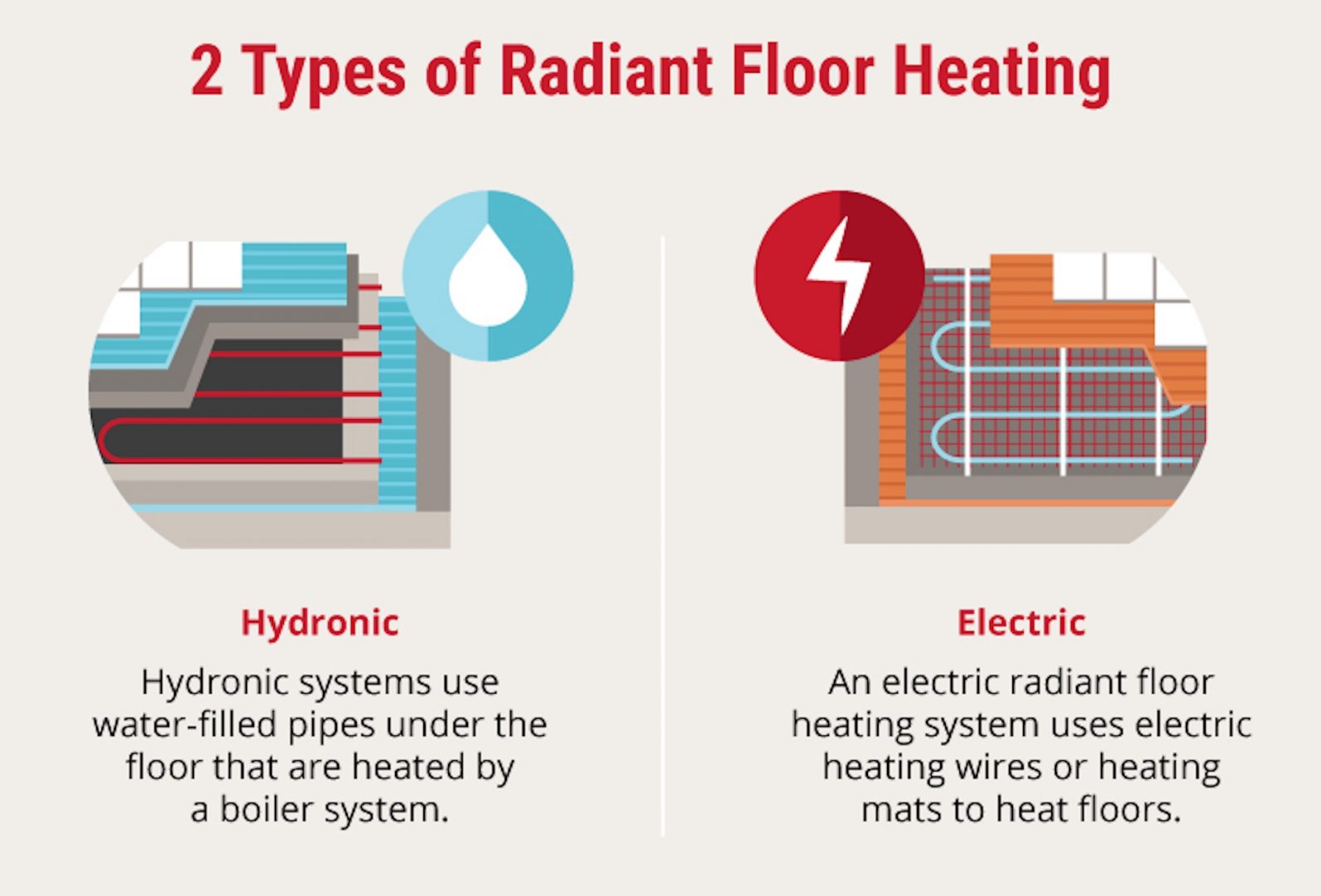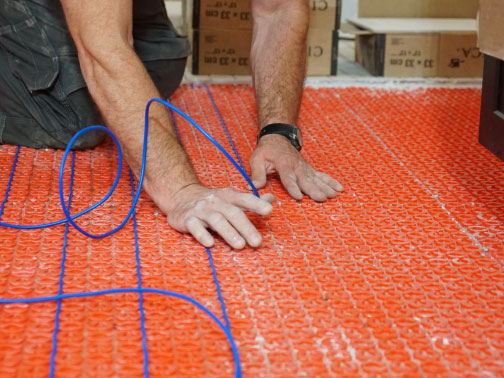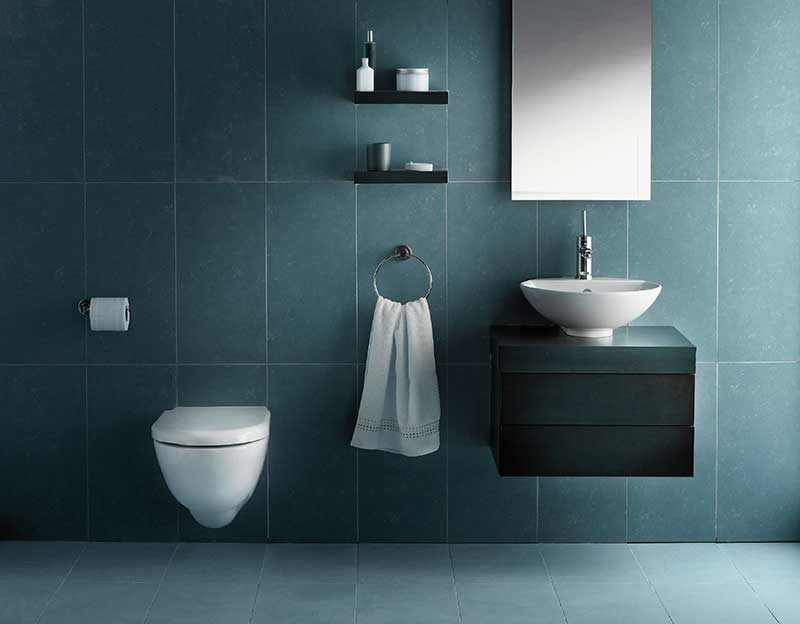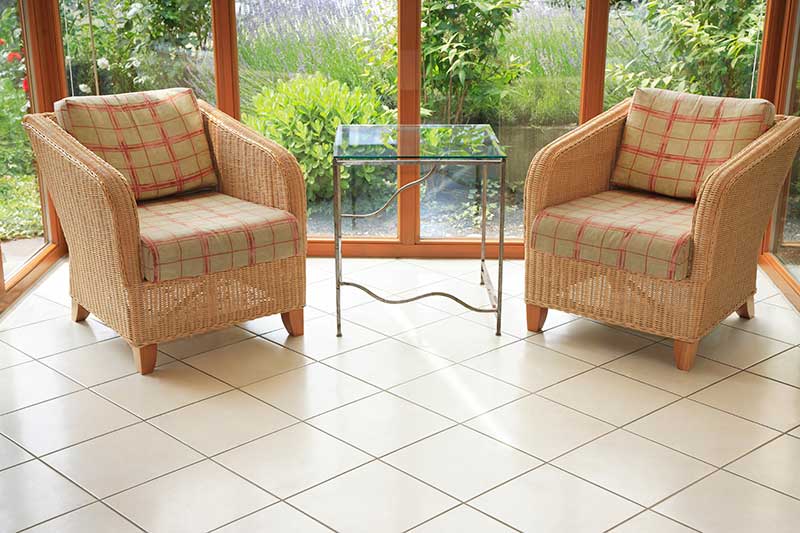Once cold weather sets in, heaters come on — and vice versa, when the weather gets hot, the cooling systems start working. For mobile homeowners, this shift in temperatures can drastically increase energy bills if your home doesn’t have the right system or isn’t adequately prepared for cold weather. That’s why finding the best heating and cooling system for mobile homes is essential, regardless of your mobile home’s size. Here are some of the best systems for mobile homes and some ways to help maximize their efficiency.
Heating and Cooling Systems for Mobile Homes
Despite their small size, mobile homeowners still have a few options for heating and cooling their space. Here are some of the best heaters for mobile homes to consider.
Furnace Heating Systems
Furnaces come in two varieties: gas and electric.
Gas Furnaces
Gas furnaces are expensive to install due to the piping they require. They also have a more complex installation process compared to electric furnaces. Despite that initial cost, gas can be more cost-effective in the long term since gas is a more efficient option. These systems will also heat up quickly.
The downside to gas furnaces is that gas creates carbon monoxide, which can pose a serious risk if not monitored with a carbon monoxide detector. On average, you can expect a gas furnace to last up to 20 years with proper maintenance.
Electric Furnaces
Electric furnace systems are cheaper to purchase and install but have higher long-term costs, though maintenance is minimal. These systems are quieter and have a longer life span, lasting up to 30 years with the proper care.
Heat Pumps
Heat pumps are popular in most areas of the country, because they can provide heat and air conditioning from the same unit, using the same ducting system. In the winter, the system draws heat from the outside air through a system of coils and transfers it to the inside unit where the blower distributes it through the ductwork. In the summer, the heat pump pulls the hot air from the home and transfers it to the coils in the outside unit, where the fan transfers the heat to the atmosphere.
Compared to either an electric or gas furnace, heat pumps can be more efficient, resulting in lower energy bills. In the coldest climates, heat pumps rely on electric heating coils to provide the heat they can’t draw from the outside air. They are also expensive to install. If you are currently using radiator or baseboard heating, you will have to have ducts installed to channel the flow of heat to the individual rooms.
Cooling and Heating Wall Units
Another one of the best heating and cooling system for mobile homes is wall units or ductless systems. These are essentially little heat pumps designed to heat or cool single rooms. Unlike window units, these wall units can be mounted on any exterior wall and only require a small opening for the piping to pass through to the outdoors. Wall units are considered to be more efficient than ductwork heat pumps since there is minimal to no heat loss during air transfer.
Downsides to Consider with Wall Units
In extremely cold environments, you must have a fuel-based backup heat source. They cost significantly more than window units when heating or cooling small areas. If you replace a whole-house system with these wall units, you can pay up to three times more than you would by replacing your main system.
Radiant Floor Heating
Electric radiant heating is one of the most efficient and comfortable sources of heat that is available. Underfloor radiant heat provides even heating throughout the room, because it heats the people and furniture in the room, not the air. Radiant heat is transmitted through electromagnetic waves and is absorbed by the people and objects in the room. Its effect is the same as having your shirt warmed by the Sun on a winter day. You feel the heat, but don’t see the source.
Heat generated by blowing hot air through ducts tends to cluster near the ceiling away from the intake, causing hot and cold spots in the room. Furnaces and heat pumps depend on fans to drive the air throughout the home. They are noisy, and blow allergens throughout the home, and they are either off or on, requiring a startup cycle every time it operates, which is a large energy draw.
A radiant underfloor system, coupled with a smart thermostat, can maintain the temperature in a room without the expensive startup cycle that furnaces and heat pumps must go through, and there is minimal chance of cold and hot pockets forming, since the air is not being heated.
Considerations When Choosing Heaters for Mobile Homes
When choosing a heating system for your mobile home, you don’t want to choose something just because it is cheap or what everyone recommends. You need to take the time to consider various factors beyond “everyone has it.” Things to consider when choosing the best heating and cooling system for mobile homes include:
Space
In mobile homes, space comes at a premium. While most modern mobile homes now have ductwork, older ones do not. You’ll have to account for that and equipment like a furnace or boiler, which take away from usable space.
Climate
The colder your location is, the harder a system would have to work to warm up your home, regardless of size. This can result in higher energy bills.
Insulation
How well-insulated your mobile home is can also affect the effectiveness of a heating or cooling system. The better the insulation, the better the system will work.
Zoning Capabilities
If you want to save money, it is vital to consider systems that offer zoning capabilities. This will allow you to control the temperature in different spaces, focusing the heat on the rooms you use more or are currently in. Zoning can minimize the amount of wasted heat and help you save on your energy bills.
Budget
Budget is crucial in choosing the best way to heat a mobile home. While you want to choose the best possible system for your home, you don’t want to forget your budget. It is essential to consider each system carefully before making a final decision, taking the time to talk to experts to ensure the best choice possible.
How to Increase the Efficiency of a Mobile Home Heating System
There are a few different ways to help increase the efficiency of your mobile home system. Some of these include:
Adding Wall and Ceiling Insulation
As previously stated, insulation ensures efficient heating and cooling in your mobile home. Older mobile homes often have little to no insulation unless you add it yourself, which, while not easy, is possible and one of the best things you can do.
You have a few options for insulation, but fiberglass is one of the most affordable and can be installed between joists to help isolate the cold wind under your home. Blown-in insulation can be used in the attic if you can reach it. Adding insulation to these two areas can make a significant difference by itself. Combined with mobile home heaters, you’ll have the perfect setup.
Skirting
Skirting, or underpinning, is manufactured to enclose the crawlspace below a mobile home. Skirting can be brick, vinyl, or cinder blocks and helps prevent cold air from getting underneath your home.
Plug-In Cable Kits for Freeze Protection
Warmup, a radiant heat flooring manufacturer, also makes plug-in cable kits that provide freeze protection for pipes and cables. While not necessary, it can be an advantage for mobile homes as they are more susceptible to outside temperatures.
Use a Radiant System for Supplemental Heating
Radiant floor heating is one of the most unique, and possibly best, mobile home heating systems options. It is typically used as a supplemental rather than a main system, making it worth using in conjunction with your existing system.
Radiant floor heating is a form of heating that uses a series of cables or pipes installed underneath flooring to heat a space through electromagnetic waves. There are two types of radiant heating systems: hydronic and electric.
Hydronic Radiant Heating
Hydronic radiant heating systems rely on water to create the heat. This water is heated in a boiler system before being pushed through small pipes under the floor. That heat travels upwards, heating the floor first before continuing up to heat the space.
While hydronic systems are extremely effective, they are expensive to install, require a lot of maintenance, and need space for the boiler. They are also best suited for new construction.
Electric Radiant Heating
The basic concept of electric radiant heating systems is the same, but electrical cables are used instead of pipes to produce heat. It doesn’t require any bulky components and is easily controlled by a smart thermostat.
Electric radiant heat is easy to install and can work for any home, including mobile homes. It is maintenance-free, and while it is affordable to install, you will need to budget for an electrician to do all the wiring.
What Makes Radiant Heating Good for Mobile Homes
Electric radiant heating is one of the best heating systems for mobile homes because it offers the most benefits. Not to mention, there are many electric radiant heating systems to choose from, which makes them easily compatible with a wide range of flooring. You also don’t have to worry about an electric radiant system raising your floor significantly.
Plus, becuase electric radiant heating is under the floor, it is considered an “invisible” system— one that doesn’t require any bulky equipment. Besides the thermostat, everything is hidden underneath your floors.
How Adding Radiant Heating Saves Money
Radiant heating does not have to travel through ductwork, which reduces heat loss. The technology involved in radiant heating also means that it will heat a space quicker and at lower temperatures than more traditional systems. These two features play a significant role in helping to reduce your energy bills.
Another money-saving benefit that makes a radiant heating system the best heater for mobile home use is its zoning capabilities. Smart thermostats control radiant flooring systems and offer many energy-saving functions, including the ability to focus heat on a specific area so that you aren’t heating unused space. You can also set automated schedules to control when each area of your home gets heated.
Insulation and Radiant Heating: The Perfect Combination
While on its own, insulation in the walls and ceiling can significantly impact the warmth of your mobile home, combining it with a radiant heating system will make for a winning combination. Together, these two will help ensure optimal temperatures with minimal heat loss and no cold spots. You can pair the insulation with a system like Warmup’s DCM-PRO, which is compatible with almost all floor coverings. Add Warmup’s Ultralight Insulation Boards underneath the DCM-Pro system for even more warmth.
Radiant Floors: The Best Way to Heat a Mobile Home
Despite their size, heating a mobile home can be difficult. Warmup’s electric radiant floor systems offer a great way to supplement a main system without taking away from your living space. Combined with adequate insulation, you’ll never feel cold inside again, making it one of the best heating systems for mobile homes—especially those located in cooler climates.
Contact us today or visit our website to learn more about electric radiant heating and all the products Warmup offers.









